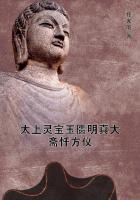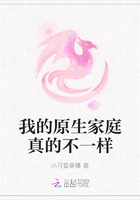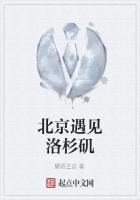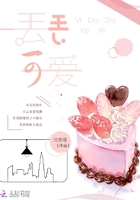Flaxman and Blake had few imitators. But a host of clever designers, such as Cipriani, Angelica Kauffmann, Westall, Uwins, Smirke, Burney, Corbould, Dodd, and others, vied with the popular Stothard in "embellishing" the endless "Poets," "novelists," and "essayists" of our forefathers. Some of these, and most of the recognised artists of the period, lent their aid to that boldly-planned but unhappily-executed "Shakespeare" of Boydell,--"black and ghastly gallery of murky Opies, glum Northcotes, straddling Fuselis," as Thackeray calls it. They are certainly not enlivening--those cumbrous "atlas" folios of 1803-5, and they helped to ruin the worthy alderman. Even courtly Sir Joshua is clearly ill at ease among the pushing Hamiltons and Mortimers; and, were it not for the whimsical discovery that Westall's "Ghost of Caesar" strangely resembles Mr. Gladstone, there would be no resting-place for the modern student of these dismal masterpieces. The truth is, Reynolds excepted, there were no contemporary painters strong enough for the task, and the honours of the enterprise belong almost exclusively to Smirke's "Seven Ages" and one or two plates from the lighter comedies. The great "Bible" of Macklin, a rival and even more incongruous publication, upon which some of the same designers were employed, has fallen into completer oblivion. A rather better fate attended another book of this class, which, although belonging to a later period, may be briefly referred to here. The "Milton" of John Martin has distinct individuality, and some of the needful qualities of imagination. Nevertheless, posterity has practically decided that scenic grandeur and sombre effects alone are not a sufficient pictorial equipment for the varied story of "Paradise Lost."It is to Boydell of the Shakespeare gallery that we owe the "Liber Veritatis" of Claude, engraved by Richard Earlom; and indirectly, since rivalry of Claude prompted the attempt, the famous "Liber Studiorum" of Turner. Neither of these, however--which, like the "Rivers of France" and the "Picturesque Views in England and Wales"of the latter artist, are collections of engravings rather than illustrated books--belongs to the present purpose. But Turner's name may fitly serve to introduce those once familiar "Annuals" and "Keepsakes," that, beginning in 1823 with Ackermann's "Forget-me-Not," enjoyed a popularity of more than thirty years. Their general characteristics have been pleasantly satirised in Thackeray's account of the elegant miscellany of Bacon the publisher, to which Mr. Arthur Pendennis contributed his pretty poem of "The Church Porch." His editress, it will be remembered, was the Lady Violet Lebas, and his colleagues the Honourable Percy Popjoy, Lord Dodo, and the gifted Bedwin Sands, whose "Eastern Ghazuls" lent so special a distinction to the volume in watered-silk binding. The talented authors, it is true, were in most cases under the disadvantage of having to write to the plates of the talented artists, a practice which even now is not extinct, though it is scarcely considered favourable to literary merit. And the real "Annuals" were no exception to the rule. As a matter of fact, their general literary merit was not obtrusive, although, of course, they sometimes contained work which afterwards became famous. They are now so completely forgotten and out of date, that one scarcely expects to find that Wordsworth, Coleridge, Macaulay, and Southey, were among the occasional contributors. Lamb's beautiful "Album verses"appeared in the "Bijou," Scott's "Bonnie Dundee" in the "Christmas Box," and Tennyson's "St. Agnes' Eve" in the "Keepsake." But the plates were, after all, the leading attraction. These, prepared for the most part under the superintendence of the younger Heath, and executed on the steel which by this time had supplanted the old "coppers," were supplied by, or were "after," almost every contemporary artist of note. Stothard, now growing old and past his prime, Turner, Etty, Stanfield, Leslie, Roberts, Danby, Maclise, Lawrence, Cattermole, and numbers of others, found profitable labour in this fashionable field until 1856, when the last of the "Annuals"disappeared, driven from the market by the rapid development of wood engraving. About a million, it is roughly estimated, was squandered in producing them.
In connection with the "Annuals" must be mentioned two illustrated books which were in all probability suggested by them--the "Poems"and "Italy" of Rogers. The designs to these are chiefly by Turner and Stothard, although there are a few by Prout and others.
Stothard's have been already referred to; Turner's are almost universally held to be the most successful of his many vignettes.
It has been truly said--in a recent excellent life of this artist {10}({10} By Mr. Cosmo Monkhouse.)--that it would be difficult to find in the whole of his works two really greater than the "Alps at Daybreak," and the "Datur Hora Quieti," in the former of these volumes. Almost equally beautiful are the "Valombre Falls" and "Tornaro's misty brow." Of the "Italy"set Mr. Ruskin writes:- "They are entirely exquisite; poetical in the highest and purest sense, exemplary and delightful beyond all praise." To such words it is not possible to add much. But it is pretty clear that the poetical vitality of Rogers was secured by these well-timed illustrations, over which he is admitted by his nephew Mr. Sharpe to have spent about 7000 pounds, and far larger sums have been named by good authorities. The artist received from fifteen to twenty guineas for each of the drawings; the engravers (Goodall, Miller, Wallis, Smith, and others), sixty guineas a plate.
The "Poems" and the "Italy," in the original issues of 1830 and 1834, are still precious to collectors, and are likely to remain so.















